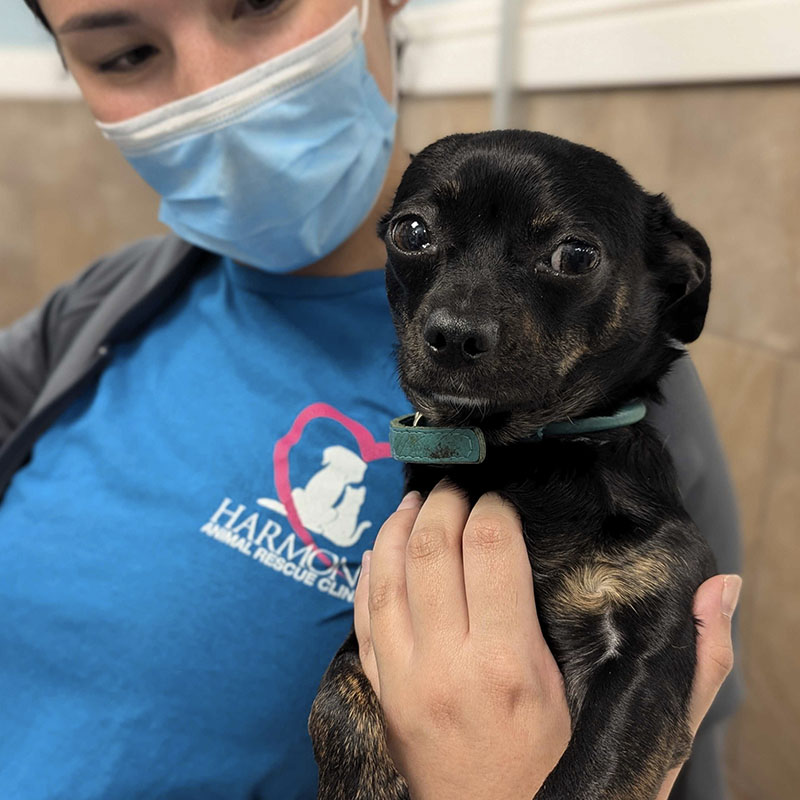Heartworm Treatment
Dogs entering rescue groups often come from environments where preventative veterinary care is lacking. Heartworm disease is prevalent in many areas, especially in warmer climates, and can be particularly concerning for rescues. Left untreated, heartworms can cause life-threatening complications, including heart failure and significant organ damage.
By providing heartworm treatment to rescued animals, rescue groups save lives and make the dogs more adoptable. Potential adopters are far more likely to take home a pet that has been treated or is undergoing treatment.
Heartworm Treatment Program for Rescued Animals
Before beginning heartworm treatment, a dog must complete a 30-day course of Doxycycline or Minocycline and receive two doses of Ivermectin-based heartworm prevention or Advantage Multi. Ideally, there should be a 30-day waiting period between the Doxycycline and Melarsomine injections, although this wait period can be flexible depending on the dog’s condition.
Two Injection Melarsomine Protocol
This protocol involves two injections of Melarsomine. Before receiving these injections, the dog must complete the 30-day Doxycycline/Minocycline treatment and receive two doses of heartworm prevention. The injections are given 24 hours apart under heavy sedation in a clinic, and the dog is closely monitored. In some cases, the dog may return to a foster home between injections if that is more convenient.
Strict bed rest for 45 days following the injections is mandatory to minimize complications as the dog’s body processes the dead worms. This rest period is critical to the dog’s recovery.
Required Medications:
- Gabapentin (for pain) for seven days following the injections.
- Prednisone (anti-inflammatory) for 28 days after the injections.
- Doxycycline or Minocycline (antibiotic) for a 30-day course prior to injections.
- Ivermectin-based heartworm prevention for two months before starting injections (Advantage Multi is also acceptable).
- Trazodone may be prescribed for dogs that have difficulty staying calm during recovery.
Three Injection Melarsomine Protocol
Recommended by the American Heartworm Society, this protocol involves three Melarsomine injections and is generally used for symptomatic, elderly, or small dogs. Similar to the two-injection protocol, the dog must complete a 30-day Doxycycline/Minocycline treatment and receive two doses of heartworm prevention prior to the injections.
After the first injection, the dog must undergo 30 days of bed rest. Then, the second and third injections are administered 24 hours apart, followed by another 45 days of strict bed rest. The injections are given under heavy sedation, with most dogs spending the night at the clinic between the second and third injections.
Required Medications:
- Gabapentin for 2-3 days following each injection.
- Prednisone for 30 days after the injections.
- Doxycycline or Minocycline for a 30-day course prior to injections.
- Ivermectin-based heartworm prevention for two months before injections (Advantage Multi is also acceptable).
- Trazodone may be prescribed for dogs that struggle to stay calm during recovery.
Home Care Responsibilities
Throughout the recovery period, monitor your dog for symptoms such as coughing, gagging, vomiting, diarrhea, or loss of appetite. Signs of respiratory distress, excessive lethargy, or coughing up blood require immediate veterinary attention.
Exercise restriction is critical before, during, and after treatment. Increased blood flow due to exercise can push dead heartworms into smaller lung vessels, causing dangerous blockages. Strict bed rest reduces the risk of complications and increases the chances of a smooth recovery.
Aftercare and Prevention
After completing heartworm treatment, dogs must stay on monthly heartworm preventatives to avoid reinfection. A heartworm test should be conducted 7-9 months after treatment to ensure that all heartworms have been eliminated.
Choosing the Right Protocol
Most rescues opt for the Two-Injection Protocol. However, the Three-Injection Protocol may be a safer option for symptomatic, elderly, or small dogs. Additional diagnostics, such as chest X-rays or bloodwork, may be recommended to determine the best treatment plan.
For more information on heartworm disease and treatment, visit the American Heartworm Society.

